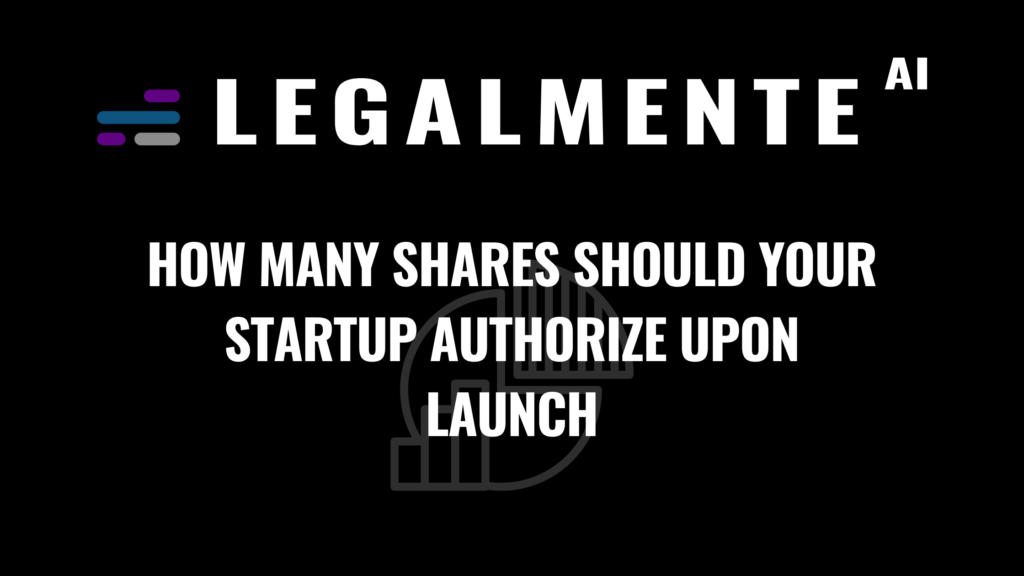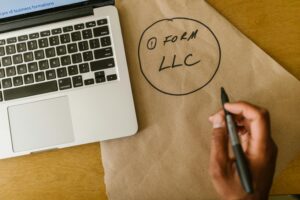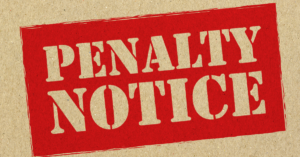New startups often launch with 10 million authorized shares. Founders often ask me, “Why 10 million shares?”
Before answering how many shares of stock a new startup should issue, founders must first understand the difference between authorized, issued, and outstanding shares.
What Is The Difference Between Authorized, Issued, and Outstanding Shares?
The number of authorized shares is the maximum number of shares that a corporation is legally allowed to issue to its investors and stockholders. When a corporation is formed, founders will submit a certificate of incorporation (also called the “charter”) to the appropriate Secretary of State. Among other things, the charter includes the maximum number of shares that the corporation is authorized to distribute or “issue.”
Issued Shares are the number of authorized shares that the corporation has actually issued to all its stockholders. Legally speaking, the number of issued shares cannot be greater than the number of authorized shares.
Outstanding shares are the issued shares that are currently outstanding. After being issued, a corporation may buy back shares that then are no longer outstanding.
Think Of The Number Of Authorized Shares As Your Company’s Share “Limit”
The number of authorized shares is much like a credit limit on a credit card. Let’s say you have a $5,000 credit limit and your ABC Corporation only has 5,000 shares authorized. The $5,000 limit is like the number of authorized shares — you cannot spend more than $5,000 credit limit, just like ABC Corporation cannot sell or grant more than 5,000 shares.
Starting with its 5,000 authorized shares, let’s say ABC Corporation issues 2,600 shares. This is like the company spending $2,600 of its $5,000 “credit limit.” You have $2,400 left to spend in your credit line, and ABC Corporation has 2,400 shares left to issue.
Issuing more shares than there are authorized makes those additional shares voidable. To issue more shares once you have reached the authorized limit, you need to amend the corporation’s charter, which usually requires approval from the board of directors and at least a majority of the existing stockholders (or whatever approval process the company’s charter or bylaws states).
The stockholders might not be eager to approve of this change because increasing the number of authorized shares allows for the possibility to issue more shares that can dilute the ownership of existing stockholders.
How Many Shares Do Startup Founders Need To Issue?
The commonly accepted standard for new companies is 10 million shares. When you build a venture-backed startup designed to scale, you will need to issue shares to an increasing number of employees.
Authorizing 10 million shares means it will be unlikely you’d ever need to offer someone a fraction of a share. A company can grant 10,000 shares to an employee which represents just 0.1% of 10 million shares. Psychologically, that works much better than giving ten shares which would be 0.1% of 10,000 shares.
Also, the price per share will be lower. Let’s say two companies are each worth $1 million. One company has authorized and issued 10 million shares, while another has authorized and issued 1,000 shares. The first company would have a price per share of 10 cents per share. The second company would have a price per share of $1,000. As an investor, it can “feel” better to buy at a lower price.
The quoted examples assume that the number of issued shares is at the maximum number of authorized shares. Out of a company’s 10 million authorized shares, founders are typically issued anywhere from 5 to 7 million shares. This practice makes sure that the founders always own a majority of the issued shares even when all 10 million shares have been allocated.
To incentivize employees, startup founders reserve a percentage of the company to issue employees stock options or other equity incentives. This reserved number of shares is called the “option pool” and is most commonly the number equal to 10 to 20% of the currently issued shares.
The remaining number of authorized shares that are not issued or reserved for issuance is available to investors, usually as preferred stock.
How Do You Calculate The Ownership Percentage Of A Startup’s Shares?
When calculating the percent ownership of a corporation, do not count the authorized shares. Instead, focus on the number of issued shares.
In the example of a startup with 10 million authorized shares, 6 million are issued equally between two founders so that each founder owns 3 million shares, or 50%, of the company. If the founders wish to have a 10% option pool for employees, 600,000 shares are reserved for issuance as stock options (or other equity incentives).
Please note that stock options give the right to purchase shares of stock but are not actually shares of stock, so a holder of stock options has no ownership in the company until the stock option is exercised.
Summary
Investors are used to seeing 10 million shares, but you can choose any number to authorize. The key is to have enough shares to issue additional shares to incentivize employees and to raise funds from investors without immediately having to amend your charter every time you wish to issue additional shares.
This article lays out the distinction between authorized and issued shares as well as some strategies related to allocating them, but please note that this post (1) is not provided in the course of and does not create or constitute an attorney-client relationship, (2) is not intended as a solicitation, (3) is not intended to convey or constitute legal advice, and (4) is not a substitute for obtaining legal advice from qualified professionals.
LegalMente AI – The One-Stop AI Legal ShopTM
Lawyers are expensive. If you’re tired of high legal costs, you should consider using AI to help.
LegalMente AI® uses artificial intelligence to reduce the cost of legal work for small businesses, startups, healthcare, and individuals.
LegalMente’s software uses patent pending RedFlag DetectionTM AI technology to read and analyze common legal contracts with accuracy and speed. Our AI Paralegal, ParaTM, can answer legal questions, analyze multiple file types, and help you form a business.
Our Pre-Drafted Legal Document Templates contain templates for common legal contracts such as NDAs, BAAs, and SAFEs. And LegalMente AI can also help connect you to licensed attorneys.



